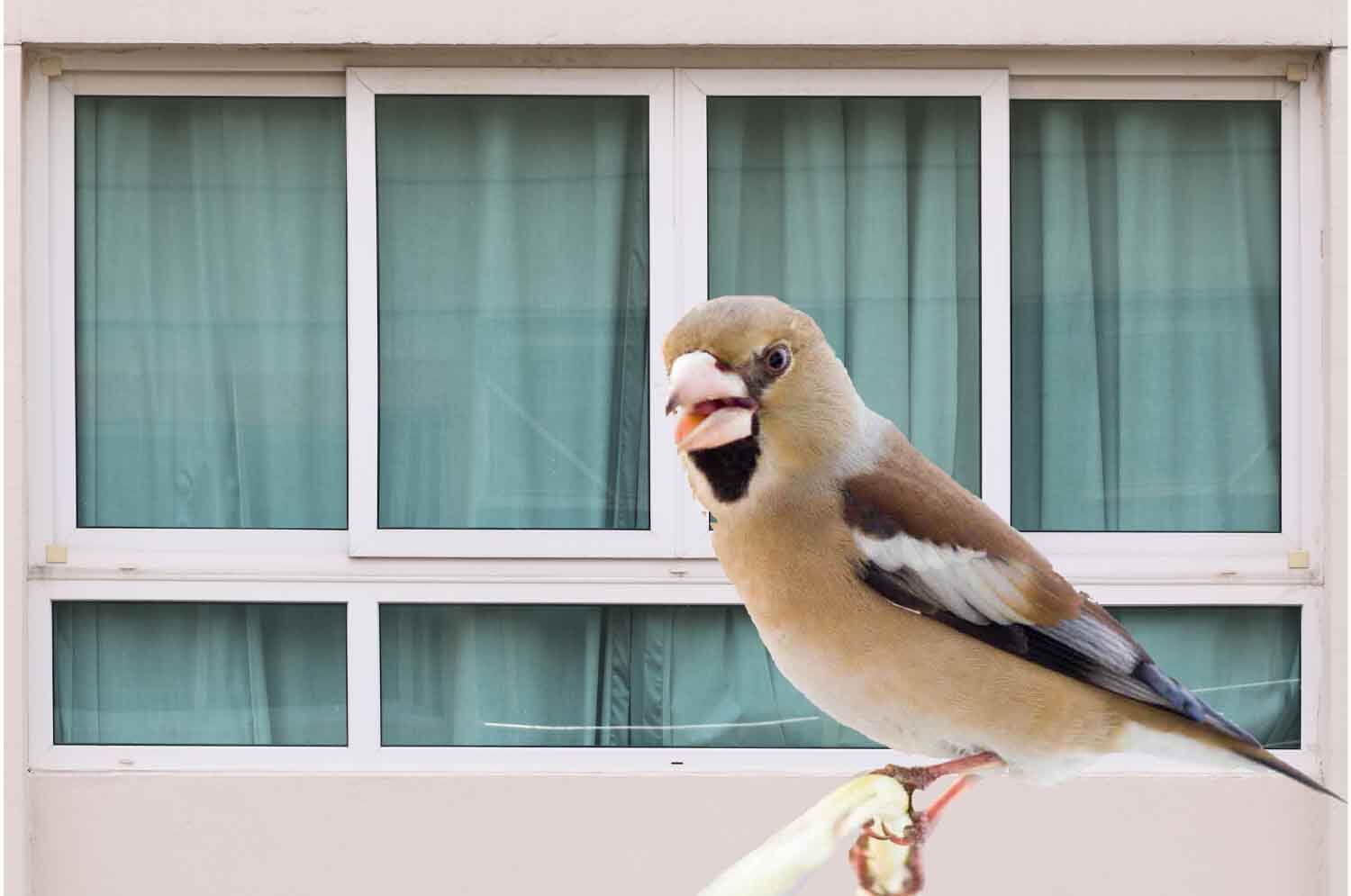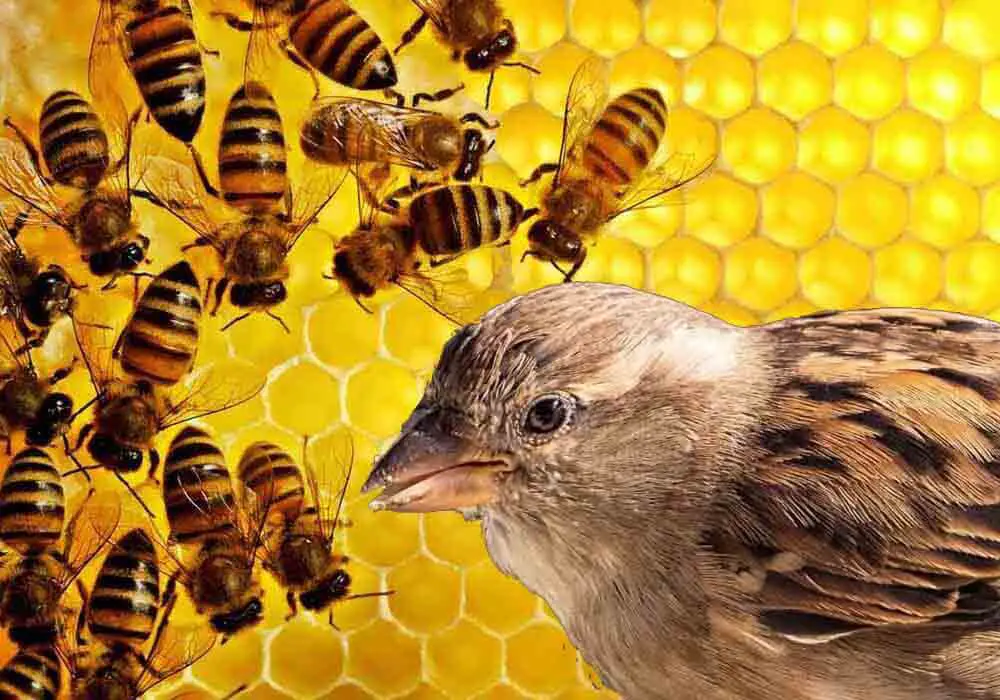Do Birds Interbreed?
It’s no secret that wild birds can be pretty promiscuous in keeping their genes alive and maintaining their populations. However, are birds willing to look outside their species to continue their legacy?...Do birds interbreed?
Of the 10,000 known bird species, around 10% are known to interbreed, creating unique hybrid bird species. However, birds must be within the same genus or family to hybridize. These hybrids aren’t always successful, though.
This article will explore the ins and outs of bird reproductive tactics and the lengths they will go to continue their bloodline, be it with their own species, a different species, or within the family unit.

Why Do Some Birds Interbreed?
For the most part, birds show an overwhelming preference for creatures that look like them, a phenomenon known as assortative mating.
That said, some species prefer any species that is just close enough to them genetically that they’re part of the same family or genus but a different species altogether.
However, as this article by Scientific American states, genetic preference goes beyond physical appearance. Bird species with strikingly similar genetic codes can look completely different and still feel compelled to mate with one another.
A theory that attempts to explain why our avian friends can be so unpredictable have to do with speciation.
Normally, speciation details how groups of the same species become isolated from each other, breeding amongst themselves, until they develop different characteristics and eventually become separate species.
This theory, however, follows how bird species migrated to different parts of the world, evolved into different species, found each other again, and produced offspring due to their genetic similarities.
Scientists have gathered resources from across the globe and have dedicated their lives to researching bird mating patterns, and yet we’ll never truly know why they do the things they do without having a conversation with them. Perhaps someday. do birds interbreed
Types of Birds That Interbreed
Though any bird species in a family or a genus can hybridize, certain birds are far more prone to it than others.
- Mallards and other ducks
- Hummingbirds
- Gulls
Ducks and hummingbirds are pretty promiscuous, which is a potential explanation for why interbreeding is so rampant in these groups.
Conversely, gulls are suspected of interbreeding because the genetic differences across species are so minor. This is due to their genetic split being relatively recent in evolutionary history.
Naturally, the circumstances in the wild are far different from those in captivity. Birds kept in captivity are far more likely to interbreed, or even inbreed, with other birds they’re kept with, even if they’d usually make an effort to avoid this behavior in the wild.
But, as they say, you can get used to anything, and captive birds certainly make the most of their situation where breeding is concerned.
Avid bird-watchers may be breaking out in a cold sweat, realizing that bird identification difficulty levels just went up a notch. Not to worry, this guide will explain some key features to look for when identifying hybrids.

Birds do get around when it comes to mating, but can birds crossbreed (different than interbreeding) with others outside their species? We wrote a whole article on this topic here.
Risks of Bird Interbreeding
Reproducing outside your species is a risk that some birds don’t seem to measure the gravity of before creating hybrids. Though genetically interesting, hybrid birds can also be relatively weak and vulnerable.
Like many other hybrid animals, hybrid birds are sometimes born with physical abnormalities, making it harder for them to survive in the wild.
Some of them are born sterile, which negates the purpose of reproduction: to continue the species for as long as possible.
Interbreeding doesn’t benefit or hold back species, mainly because such a small percentage of birds actually engage in interbreeding.
However, hybrid birds are often genetically not all that different from their parents and can continue to live a regular, very full reproductive life.
How Do Birds Know To Mate With the Same Species?
Though we’ll likely never know precisely how and why birds choose their specific partners, we have an idea of why birds of a feather flock together.
Birds recognize physical traits, calls, mating rituals, and other genetic markers that tell them which birds are part of their species. This tells them that breeding would be most successful with the same species, as there’s a much higher chance of the offspring surviving and reproducing.
This, paired with centuries of evolution, compels bird species to keep their dating pool very slim if they can help it, narrowing it down to birds that are genetically almost identical, if not wholly identical, to them.
Do Birds Mate With Their Siblings?
All living things are born compelled by evolution to reproduce, and the way creatures do this varies widely across species and even across generations. Birds, in particular, have a range of mating strategies to produce offspring that will become genetically successful. do birds interbreed
Birds very rarely mate with their siblings. In fact, they’re genetically hardwired against it because it puts the survival of their species at risk, as offspring produced through inbreeding is weaker. To combat this, most adult birds leave their birthplace to breed elsewhere.
Inbreeding contradicts this “dream” that birds have for genetic success. A bird that reproduces with its sibling will produce inferior offspring, which may not end up reproducing when its time comes.
Producing successful offspring is part of the challenge; the other is ensuring those offspring have their own offspring, and so on.
If a bird has weaker genetic makeup due to incest, it could potentially never find a mate and reproduce. If they do, their offspring won’t have as good of a chance of survival or reproduction as others of their species.
The closer two animals are genetically, the higher the chance of infertile eggs, deformed offspring, and other genetic abnormalities. Birds know this. We don’t know how they know this, but they will do their best to ensure they choose partners outside of their gene pool.
The most common tactic is known as sexual dispersal, wherein sexually mature birds fly off to other territories to put distance between them and their familial gene pool to find a suitable mate elsewhere.
However, there are always outliers that aren’t as picky with their sexual partners and wouldn’t hesitate to reproduce with a close relative.

Once birds find the perfect mate, do birds stay with that mate for life? or do they enjoy a little hanky-panky? We wrote a helpful article that addresses that very question.
Birds Known to Inbreed
Like with interbreeding, a small percentage of bird species is prone to inbreeding, often with disastrous effects on their population. Whether this is because they don’t recognize their own kin or don’t care, we can’t say for sure.
- Finches
- Chickens and other fowl
- Birds kept in captivity with no new genes introduced to the mating pool
Though the effects of inbreeding aren’t always immediately apparent in bird offspring, you can bet that in one or two generations, the cracks will start to show.
What Are the Effects of Inbreeding in Birds?
Inbreeding leads to some genetic abnormalities that manifest in the bird’s appearance, as well as its fertility. This is known as inbreeding depression.
Inbreeding affects a bird’s genetic makeup, causing the proteins and molecules that make up the bird to mutate and deform. This leads to physical defects, infertility, and a bigger struggle to survive and reproduce.
Inbreeding also significantly affects chromosomes, showing a strong preference for male chromosomes and weakening females of the species.
Physical defects in inbred birds can include:
- Blindness
- Albinism
- Smaller adult size
- Higher susceptibility to diseases
Birds are naturally programmed to know there are risks to inbreeding, so most avoid it as much as possible. Unfortunately, this isn’t always possible due to environmental factors such as deforestation.
Environmental Factors That Lead to Birds Inbreeding
Climate change, natural disasters, man-made pollution, and hunting mean that bird populations, like many other animal species, are dwindling at an alarming rate.
If a bird’s natural habitat is disturbed, it will have less success finding a mate. For example, if a forest fire destroys a bird’s nesting ground, it will kill many potential mates and force the bird elsewhere.
This means the dating pool gets smaller, and time is running out for the bird, who can only reproduce once a year for a few years. Now imagine this exact situation occurring worldwide, with countless bird species.
This grim situation gets grimmer, knowing that sometimes, a bird’s only option to spread its seed is through incest. This is a kind of last-ditch attempt on the bird’s part to save the species, which, despite the genetic risks, is better than dying out completely.
In these situations, birds are faced with following their natural aversion to incest and obeying their biological imperative to mate. Frequently the latter wins.
Birds are also far more likely to keep reproduction in the family if they’re kept in captivity without any new genes introduced. The same dilemma arises: avoid incest or save the species.
Do Birds Interbreed...Final Thoughts
Interbreeding is something that only a fraction of the bird population does, as they’re naturally programmed to mate with their own species to keep that species alive for as long as possible.
The same can be said for incest, which weakens bird populations, and is altogether not something most birds will ever resort to.
Back To The TOP Of This Do Birds Interbreed Page

About the Author...
Richard Worden, a dedicated bird lover for over 20 years, I love to share my in-depth knowledge and passion for birds. Read more About Me and my expertise in this field.
- We Know Birds HOME ›
- Bird Mating and Reproduction Information ›
- Do Birds Interbreed?



